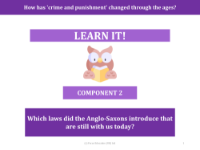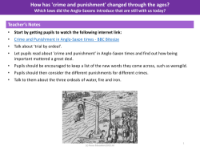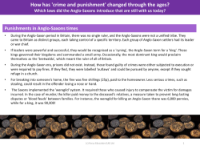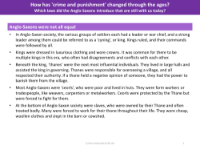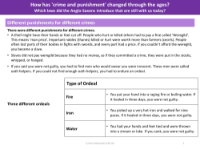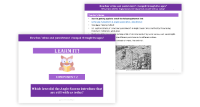What did the followinh Anglo-Saxon words mean - Worksheet - Year 5
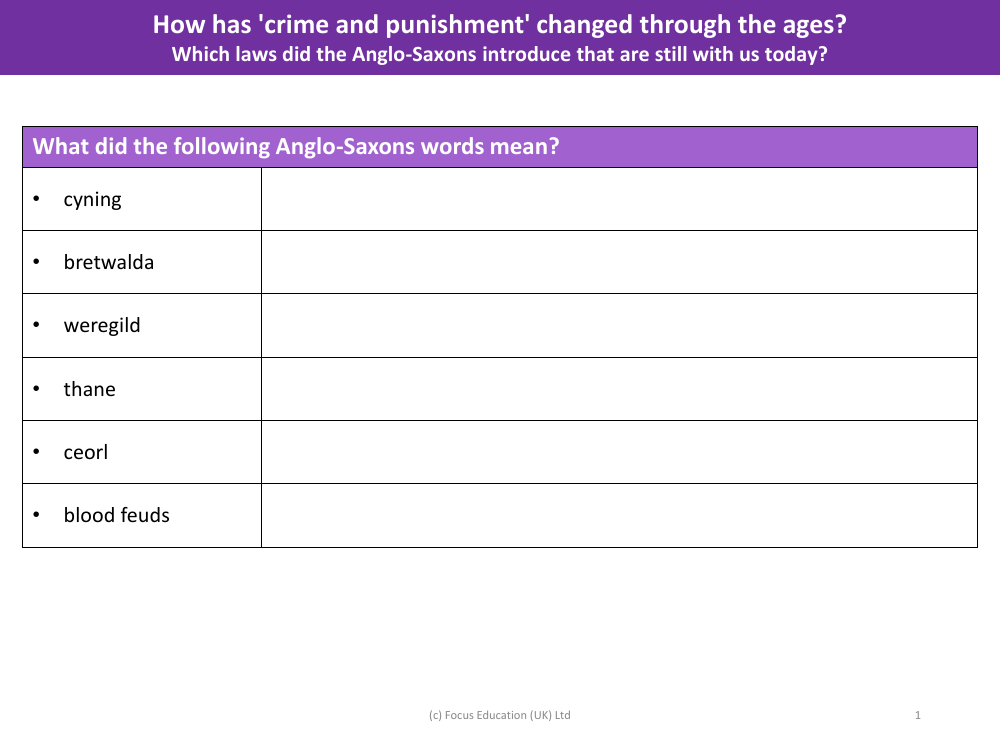
History Resource Description
The worksheet for Year 5 students delves into the meanings of various Anglo-Saxon terms, each reflecting a unique aspect of their society and governance. The term 'cyning' referred to a king, the ruler or monarch of the time. 'Bretwalda' was a title given to a king who held dominance over other rulers within the Anglo-Saxon heptarchy, essentially a high king or overlord. 'Weregild' was a compensation system, a value placed on every being and piece of property that had to be paid to the family of a victim in the event of murder or injury, as a form of restitution. A 'thane' was a nobleman or warrior, often a landholder serving the king or a noble and providing military service in exchange. The word 'ceorl' denoted a free peasant, a commoner who was a freeman with some land but of lower status than a thane. 'Blood feuds' were vendettas between families or kinship groups, where a cycle of retaliatory violence was often carried out to avenge wrongdoings or murder.
Regarding 'crime and punishment', the worksheet likely prompts students to consider how legal systems and the approach to criminal justice have evolved over time. The Anglo-Saxons introduced several laws that have influenced modern legal frameworks, including the concept of 'weregild' and the establishment of early forms of communal responsibility, which can be seen as precursors to contemporary ideas of compensation and collective duty. Students are encouraged to explore which specific laws from the Anglo-Saxon era have persisted into today's legal systems, possibly touching upon foundational principles that continue to underpin British law.
